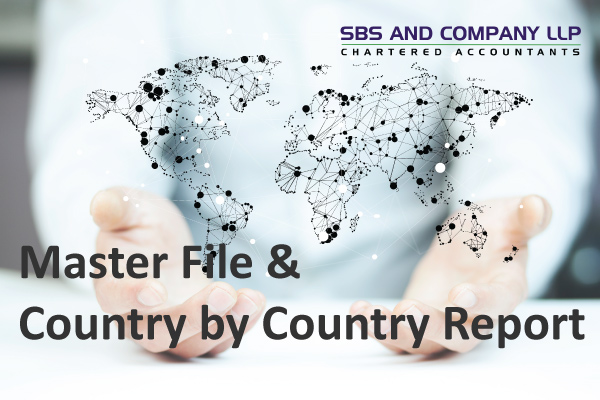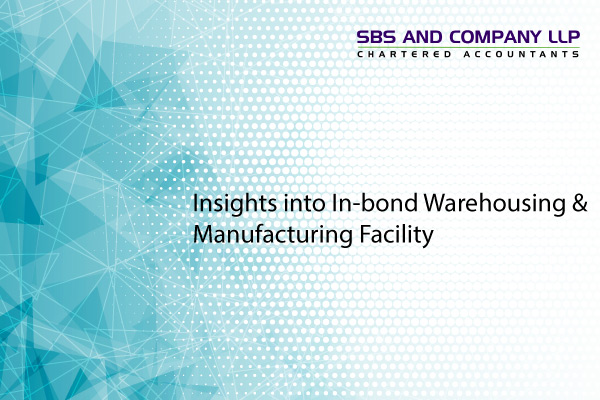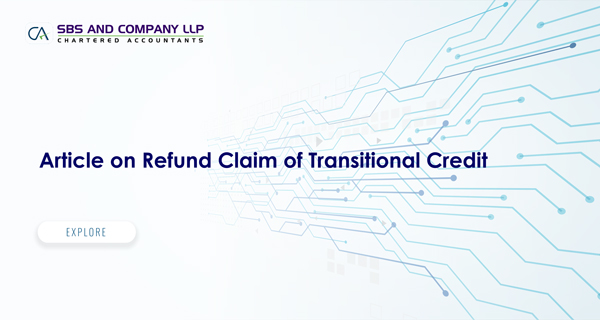Hope all of you have adopted to the new normal. The beauty of our race is ‘adaptability’ and this is the only reason that our species still survive. I pray that every one of you out there are safe and healthy.
In this edition, we bring you the guidelines and various reports/returns to be made by an international group having presence in India. The article on CbCR and MF provides the reader the gist of various compliances under the said guidelines and layouts broad details such forms contains. The article on in-sights into in-bound warehousing and manufacturing facility deals with the welcome and positive regime for the importers who can defer the payment of import taxes till they are cleared for home consumption. The article also deals with various procedures to be adopted, if one wishes to opt for such warehousing. The next article is on one of most asked area qua individual taxation, the frequently asked questions on deductions under Section 80D of Income Tax Act.
Introduction to Master File and Country by Country Report:
The lack of quality data on corporate taxation has been a major limitation to measuring the fiscal and economic effects of tax avoidance, making it difficult for authorities to carry out transfer pricing assessments on transactions between related companies and even more difficult to carry out audits.
To tackle the above issue and to provide tax authorities with sufficient information about economic activities of multinational group, OECD[1] has prepared Action Plan 13 under the BEPS[2] Package. Action Plan 13 requires every multinational group to file a detailed report namely ‘Country by Country Report’ (‘CbCr’) on its economic activities to tax authorities.
- What is the deduction specified under Section 80D?
Section 80D falls under Chapter VI-A of Income Tax Act, 1961 (for brevity ‘ITA’), which deals with ‘deductions to be made in computing total income’. Section 80D deals with deduction in respect of amounts paid towards health insurance, medical expenditure and preventive health check-up.
- Who are eligible for claiming deduction under Section 80D?
The deduction is available for individual and Hindu Undivided Family (HUF). The section allows cover for:
Introduction:
The concept of warehouse manufacturing available under Customs Act, 1962 is an age-old duty deferment and export benefit scheme useful for both domestic suppliers and exporters. It is less popular among exporters when compared to EOU1, EPCG2 and Advance Authorization schemes under the FTP3. All these schemes allow exporters to import capital goods and inputs to procure domestically without payment of customs duties and IT4. Such duty saved amounts shall stand waived when the specified export obligations are fulfilled. On the contrary when such obligations are not fulfilled within the stipulated time, the duty saved amounts proportionate to unfulfilled export obligation shall be recovered along with interest which is payable from the date of actual import of goods under the above schemes. The option of warehouse manufacturing is also worthy for exporters to consider as it does not impose any condition of export obligation and there will be a remission of duty payable on imported goods if the final goods are exported. If the final goods are cleared for domestic consumption, then the duty payable on original imported goods that was not paid at the time of their import can be paid without interest at the time of such removal. In addition to the condition of export obligation, there are no stipulations about minimum investment, minimum area and is of less administrative burden.
Read more: Insights into In-bond Warehousing & Manufacturing Facility
Introduction:
Whether the credit accumulated in the last returns filed under the previous regime can be taken to electronic credit ledger in terms of section 140 of the CT Act [1] by filing TRAN-01 even after the time limit prescribed under Rule 117 of the CT Rules [2] has been subjected to vexatious litigation and has caught the Nation’s attention with contrary decisions of various High Courts and the retrospective amendments to Section 140. The matter has finally landed before the Honourable Supreme Court [3]. Read our extensive analysis on the above matter at The Vires, Right & Retrospectivity - Transitional Credit
On the other hand, another issue related to credit of previous regime which is annoying the exporters is whether they are entitled to claim refund of the credit of the erstwhile regime that was carried forward into electronic credit ledger by filing TRAN-01 i.e. TRAN credit.
CBIC [4] vide their Circular No. 125/44/2019-GST dated 18.11.2019[5] clarified that the TRAN credit is not of the nature of accumulated credit under the GST laws and the same cannot be claimed as a refund against exports undertaken under LUT [6] without payment of IT [7].
In this backdrop an attempt is made in this article to examine the legal validity of the said clarification given by the circular and whether such clarification will also hold good even in case where refund claim was filed in cases where exports are undertaken with payment of tax.








